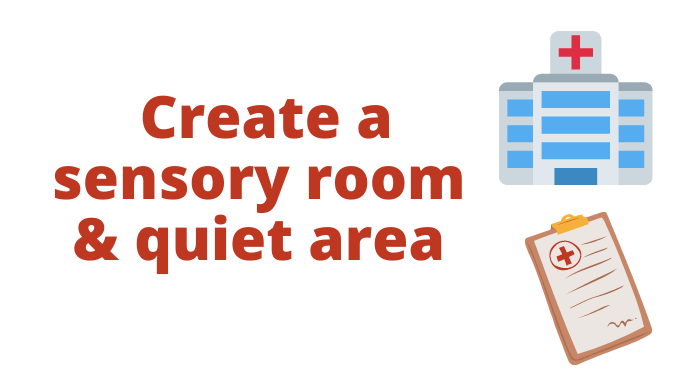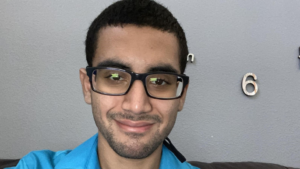Going to the doctor and hospital can be challenging for anyone. Add someone who is growing up with autism & dealt with severe sensory challenges; it can be even more overwhelming. Here are some things I would like healthcare professionals to consider for those with autism like myself…
Provide alternative lighting. Fluorescent lights can often be daunting for those who have challenges with bright lights. Dimmers in patient rooms can be an effective solution.
Avoid smells when possible. One of the most common places in the world that goes through rigorous cleaning is hospitals with the number of patients they see. Growing up, I could smell cleaning products with fragrances that were often overwhelming. Try to consider neutral cleaning products while also avoiding air fresheners.
Create a sensory room & quiet area. When I would be overwhelmed, there was often not a place for me to go to self-regulate. Things you may consider for a sensory room include sensory products such as sensory swings and placing the room in an area where there’s no foot traffic.
Presume competence. Often growing up, doctors would talk to my parents and not directly to me. I would see other patients that the doctors would talk to, making me feel less than kids my age.
Be direct. Instead of saying something like “this will just hurt a little bit,” you could give me an understanding such as a 1-10 scale (1 being the lowest, ten being the highest) while reminding me that I will be ok and that the pain I may feel is completely normal.
Consider training and certification. Having autistic speakers such as myself to educate employees could help break down barriers while reducing autism biases. Have autistic individuals provide their first-person perspectives of what they found helpful in similar situations.
Create a virtual video of your workplace to help families prepare for a visit at home. Routine and structure have played pivotal parts in my life. Many autistic people are also visual learners. Shooting a video of the public areas in your hospital and posting it online can help families prepare for their visits beforehand.
Noise-canceling headphones and sunglasses. For low-income families who may not afford specific sensory-related products, consider having a sensory cabinet at your hospital specifically for individuals with autism and Sensory Processing Disorders (SPDs). This could include things such as noise-canceling headphones.
Dietary options. While I wouldn’t specifically need this, some in our community have specific organic and gluten-free diets.
Give us time to respond. I may be processing what you are saying (if you ask me details on how I got hurt) and need a few extra seconds.
I continue to appreciate the work that all our healthcare professionals do to keep our community healthy and safe.
What would you add to this list?

Follow my journey on Facebook, my Facebook Fan Page, & Instagram!
My name is Kerry Magro, a professional speaker and best-selling author who is also on the autism spectrum that started the nonprofit KFM Making a Difference in 2011 to help students with autism receive scholarship aid to pursue a post-secondary education. Help support me so I can continue to help students with autism go to college by making a tax-deductible donation to our nonprofit here.














